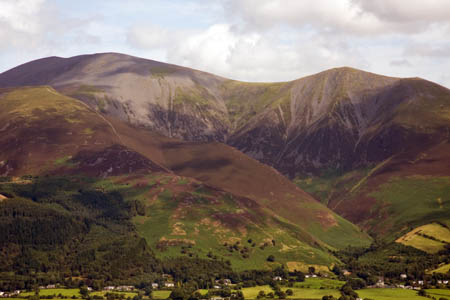 Mountain rescuers have welcomed a court’s verdict on a journalist who made hoax calls at the height of last year’s Cumbrian floods.
Mountain rescuers have welcomed a court’s verdict on a journalist who made hoax calls at the height of last year’s Cumbrian floods.
Sarah Louise Crickmer, 27, a freelance reporter of South Shields was convicted by West Allerdale Magistrates yesterday of two counts of sending false messages by a public electronic communication network to cause annoyance, inconvenience or anxiety.
Today, the mountain rescue team at the centre of the case said that hoax calls are very rare and expressed thanks to the police and magistrates who took the incident so seriously. The court warned it was considering a custodial sentence for the woman.
Mark Hodgson of the Keswick Mountain Team, the 46-strong group of volunteers that cover the northern fells of the Lake District, said: “The team was heavily involved in the severe flooding that hit Keswick in November 2009 where they were active for a continuous 30-hour period and assisted 190 casualties, before going on to help with the more publicised flood relief and search activities at Cockermouth and Workington.
“On the day in question, the team was paged at 5.40pm regarding a rescue on Skiddaw, where a walker had apparently fallen and broken their leg.
“The information that we were able to gain from the ‘informant’ was very sketchy and just didn’t add-up.
“Several separate discussions with the informant by senior team members followed culminating in the police attending the informant’s hotel with the team leader and following further questioning arresting her.
“In the meantime, 32 members of the team had already set off to Skiddaw in poor conditions to locate the casualty should the incident in fact turn out to be genuine. The team was recalled when the informant admitted that this was a hoax call.”
He said the incident was Keswick’s 129th of the year.
“It transpires that a reporter was trying to make a story out of mountain rescue teams not doing mountain rescues because of their input to the flood rescue operations,” Mr Hodgson said.
“As was categorically demonstrated on the day this was not, and never will be, the case. Within two days of this call the team was involved in a serious accident on Sharp Edge, again lasting several hours and also in poor weather conditions. The team went on to do 136 rescues in 2009; far and away the busiest ever year.”
The hearing at Workington was adjourned for reports and a warrant was issued for the arrest of Ms Crickmer, who was not present at her trial.
Keswick Mountain Rescue Team is the busiest in the country, dealing with a record 136 full-team rescues and 28 alerts in 2009. So far this year, it has taken part in 101 rescues and 18 alerts.
Weekly training, equipment checking and maintenance and running the business side of the team costs of £75,000 a year. The team receives no public funding, relying totally on voluntary contributions.
The team emphasised the need for walkers to go prepared when venturing on to the fells. Mr Hodgson said: “Whenever a walker has suffered an accident, mountain rescue teams will respond. We do, however, repeat previous pleas for walkers and climbers to go on the hills prepared and to take a torch, map and compass and have the knowledge how to use them.
“If rescue teams are involved for many hours, for example, in searching for ill equipped casualties this could detract from resources being available for a seriously injured casualty.
“Team members are all volunteers and we rely heavily on our employers releasing us to attend rescues during working hours; calls that could be avoided may decrease the willingness of our employers to allow us time off.”